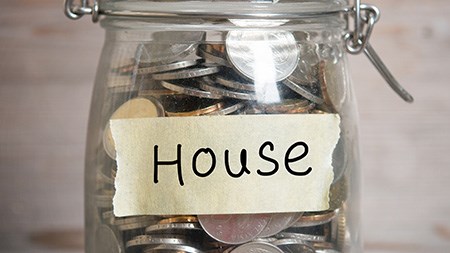The majority of first-time home buyers consist of mostly younger individuals who have limited experience of owning or maintaining a property of their own.
As a result, many of these individuals are not in a position to make a well informed decision about the long-term implications involved in purchasing a home. Seeing that investing in property has far reaching consequences, Adrian Goslett, CEO of RE/MAX of Southern Africa, offers a few tips for first time home buyers, designed to assist them in making the most well informed decision possible. “If you are in the market to buy a home, it is important to move quickly, but do not be pushed or rushed into making a decision. Property prices are starting to increase again, with a 5% increase in property prices expected in 2010, so the sooner you can get your foot in the door of property ownership, the better.
However, buying a home is a big commitment that shouldn’t be entered into lightly. Affordability is a key factor to take into consideration,” says Goslett, who notes that first time homeowners need to take potential interest rate increases into account. “In addition,” he says, “other factors such as NERSA having granted Eskom the freedom to introduce rate increases of up to 25% on electricity, needs to be taken into account when calculating the affordability of purchasing a home.” When purchasing a home, remember that the selling price of the home is not the only cost involved in the transaction, says Goslett: “There are several added costs involved in buying a property, which can add up to a sizeable amount, including transfer fees, deeds office fees and levies, municipal rates, bank charges, bond initiation fees, home insurance costs, as well as the monthly administration fee that is charged by the bank. It is critical to include all of these into your calculations to work out how much you can actually afford.” If you want to own your own property, start off by determining the size of home loan you qualify for.
With regards to home loans, your monthly income and expenditure is the single most important factor with regards how much you can borrow to purchase a property. Goslett explains: “Loan providers work out the amount you qualify for by considering your gross monthly income minus your gross monthly expenses. As a rule of thumb, your monthly bond repayment cannot be more than 30% of your total monthly income.” He says that there are a number of online mortgage calculators that will give you an estimate of what you qualify for, but says that it is important to note that there are no guarantees with regards to these results: “Calculators will only give you an estimate, as being approved for a mortgage involves more than just checking your income versus your expenses. Your credit history also plays a big part in whether you will be approved for a mortgage at all. As such, make sure your credit history is clean and that you have no late or outstanding bills that could negatively affect the bank’s decision.”
Goslett also notes that banks seldom grant 100% home loans, and says that first time homebuyers therefore need to have a deposit saved up. “It is important that the money for your deposit is easily accessible and readily available. If your offer to purchase is accepted, your deposit needs to be paid over into a trust account fairly quickly. If you do not have the funds available, you are at risk of the sale agreement falling through. “ Goslett says that it is best to get your affordability assessed: “Speak to a credible mortgage originator to establish the home loan amount you would potentially qualify for first. They will be able to list and explain all the costs involved in buying a property, and will be able to assist you in calculating just how much you can afford. In this way, you will know what price bracket to look at before you start searching for your first home, which can save you a lot of time and hassle.”
Bond terms can vary between 20 and 30 years, as can the interest rate granted by the bank. “Currently, the prime interest rate is 10,5%, but depending on your credit history, income and history with the bank, you can be approved for a loan that is charged below the prime lending rate. It is important for first time home buyers to understand that interest rates are not cast in stone, but are negotiable and that they can speak to mortgage lenders about securing a better rate,” says Goslett. “The banks also offer a variety of different products to suit individual requirements. Therefore first time buyers should be sure to investigate all the options to find the solution that is tailored to suit their specific needs,” Goslett concludes.


